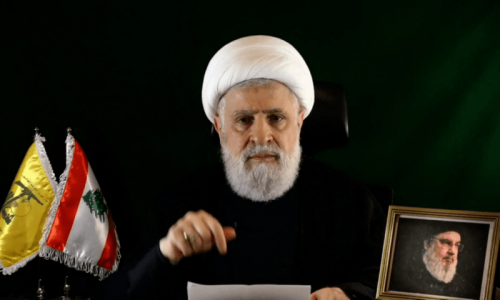CAIRO: Egypt stole the diplomatic limelight for its efforts to end recent fighting in Gaza, but its failure to achieve a negotiated truce leaves a question mark over Cairo’s future as a preferred Arab mediator.
US-ally Egypt, an Arab regional heavyweight with a peace deal with Israel, has long been treated as an indispensable go-between with Israel and Palestinian factions because of its close, if often strained, ties to both sides.
But its record and role has been shaky of late.
Israel ended its military operation in Gaza unilaterally despite Egyptian efforts for a mediated truce. That came on the heels of a disappointing round of intra-Palestinian talks that failed to reconcile bickering Palestinian groups last year.
“The ceasefire was obviously led by Israel, so there is a limit to Egyptian influence,” said Issandr el-Amrani, Egypt and North Africa analyst at the International Crisis Group, adding that Egypt also faced a credibility problem on the Arab side.Egypt has angered many Arabs by enforcing an Israeli blockade on Hamas-run Gaza by refusing to open the Gaza-Egypt border to ordinary traffic for fear Israel will saddle Egypt with responsibility for the densely populated strip.
“Now the picture is looking muddled... There is obviously an enormous amount of resentment among Hamas leaders and Palestinians more generally against the role Egypt has played,” Amrani added.
The real measure of whether Egypt can continue as an effective mediator is whether it can translate the shaky Gaza ceasefire into a mutual and longer-term truce, or mediate a settlement between Hamas and rival Palestinian group Fatah.
Among Egypt’s assets as a mediator are its strong ties with Washington and its control of the Gaza-Egypt border, which should give it leverage with both sides. Palestinians want the border opened for regular traffic, and Israel wants Egypt to do more to stop weapons smuggling through cross-border tunnels.
“It looks like it took this war for Egypt to understand it has to do something, but it hasn’t done anything yet. If arms are still smuggled, this will be deemed a failure,” said Israeli security analyst Yossi Alpher.
Reconciliation, truce deals tough
Egypt, hoping to emerge with a deal that will cement its role as the sole Arab mediator, has already invited Israel and Palestinian groups to Cairo for talks on formalising the current truce, according to state media. That task, analysts say, is possible but not easy.
But it remains unlikely that risk-averse Egypt will take strong steps on tunnels – in part to avoid alienating Sinai bedouin whose livelihoods depend on illicit trade with Gaza.Egypt is also unlikely to open the border in defiance of Israel.
Egypt has also failed so far to negotiate a deal for the release of Israeli soldier Gilad Shalit, captured in 2006.
Walid Kazziha, a political science professor at the American University in Cairo, said Egypt might be able to pull off a deal which ends the blockade of Gaza.
“But to go further than this, into (Palestinian) national unity, I think the Egyptians would be dreaming if they can do it without getting the consensus of other Arab parties, Qatar and Syria and the rest. They can’t do it on their own,” he said.Meanwhile, other regional mediators are ready at the gate to step in if Egypt’s efforts falter. Analysts say Hamas could view states like Qatar and Turkey as more palatable mediators than Egypt. Cairo has not disguised its disdain for the Islamist group, which has roots in Egypt’s opposition Muslim Brotherhood.
Qatar, in particular, was behind mediation that ended 18 months of Lebanese internal conflict last year, bringing in a unity government that included Hezbollah – an outcome that could make Islamist Hamas partial to Qatari mediation.
Egypt and its regional allies, however, managed to exclude Qatar and others from mainstream mediation in the recent Gaza war, blocking Qatar from hosting an Arab League summit on Gaza.
A consultative meeting went ahead anyway.
Analysts say Egypt may not be able to stay on as the sole preferred regional mediator forever although a long-term track record of success – it mediated a six-month Gaza truce in June, for example – is expected to keep it in the game.
“In the future or the near future, we won’t see just an ultimate role for one actor. There will be more roles for many actors,” said political analyst Hala Mustafa of the al-Ahram Democracy Review.
“They (Hamas) will continue to come to Egypt. They will continue to listen. They will continue to put their conditions. But I think, when they want to settle, they will prefer another actor,” she added.—Reuters














































Dear visitor, the comments section is undergoing an overhaul and will return soon.